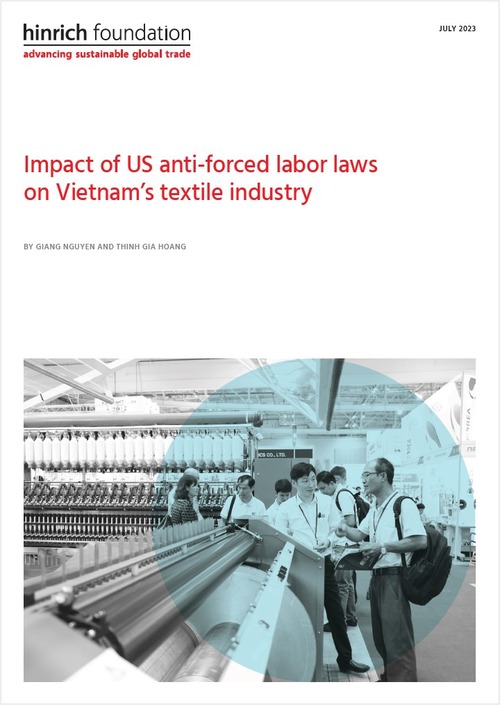Sustainable trade
Impact of US labor laws on Vietnam’s textile industry
Published 04 July 2023
As the second-largest import partner of the US and one of the largest importers of cotton from China, Vietnam's textile industry has been tremendously impacted by US law aimed at ending forced labor. Reverberations of US policy are becoming urgent not only for Vietnam's domestic industry, but also for the international supply chain.
The US Uyghur Forced Labor Prevention Act, signed by President Joe Biden in December last year, was enacted to address the issue of alleged forced labor and human rights abuses in China's Xinjiang Uyghur Autonomous Region by imposing obligations on companies and granting the US Secretary of Commerce the authority to act against violators. As the world's second-largest textile supplier, Vietnam has been the most severely impacted among garment-exporting countries. According to US customs data up to April 2023, 80% of US$15 million worth of apparel shipments to the US held up for to UFLPA inspections were from Vietnam, and only 13% of these shipments were cleared for entry.
In this report, Hinrich Foundation research grant recipients Giang Nguyen, PhD candidate in Management at the University of Newcastle (Australia), and Thinh Gia Hoang, Senior Research Fellow at the Institute of Economics and Strategic Management in Hanoi, explore the challenges faced by Vietnam’s small and mid-sized textile enterprises under the impact of the UFLPA. Drawing from insights from interviews with senior management of affected SMEs, this analysis also sheds light on the responses emerging within the industry. It concludes with a series of recommendations for the Vietnamese government and the business community to reduce exposure to these US policies.
***
A correction has been made to page 8 of the white paper which incorrectly implied that Vietnam had expanded access to US markets under the Trans-Pacific Partnership agreement.
© The Hinrich Foundation. See our website Terms and conditions for our copyright and reprint policy. All statements of fact and the views, conclusions and recommendations expressed in this publication are the sole responsibility of the author(s).








